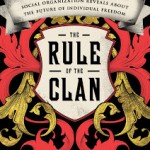Cuttings of yellow forsythia bloom on my coffee table as March threatens its last (fingers crossed) snowstorm… Finally. I confess a sigh of relief at the resurgence of sunshine, warmth and colors other than brown, gray and white. Winter’s grip on the Earth is growing weak in the face of spring’s insistent return, yet its bleak work has primed me for the impudent joy of crocuses blooming beside melting snowdrifts. Like winter’s firm discipline has prepared the tired earth for... Read more
















